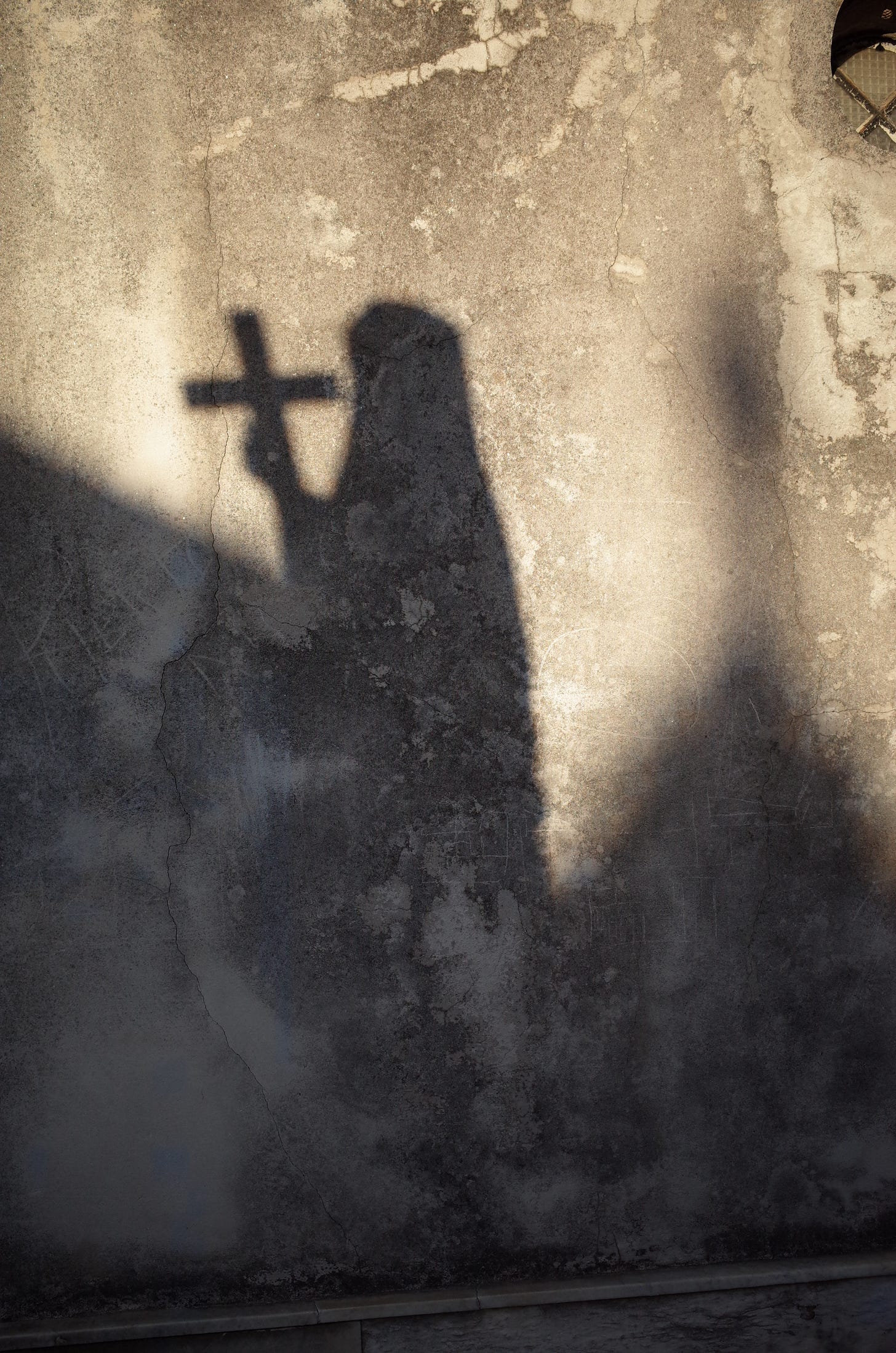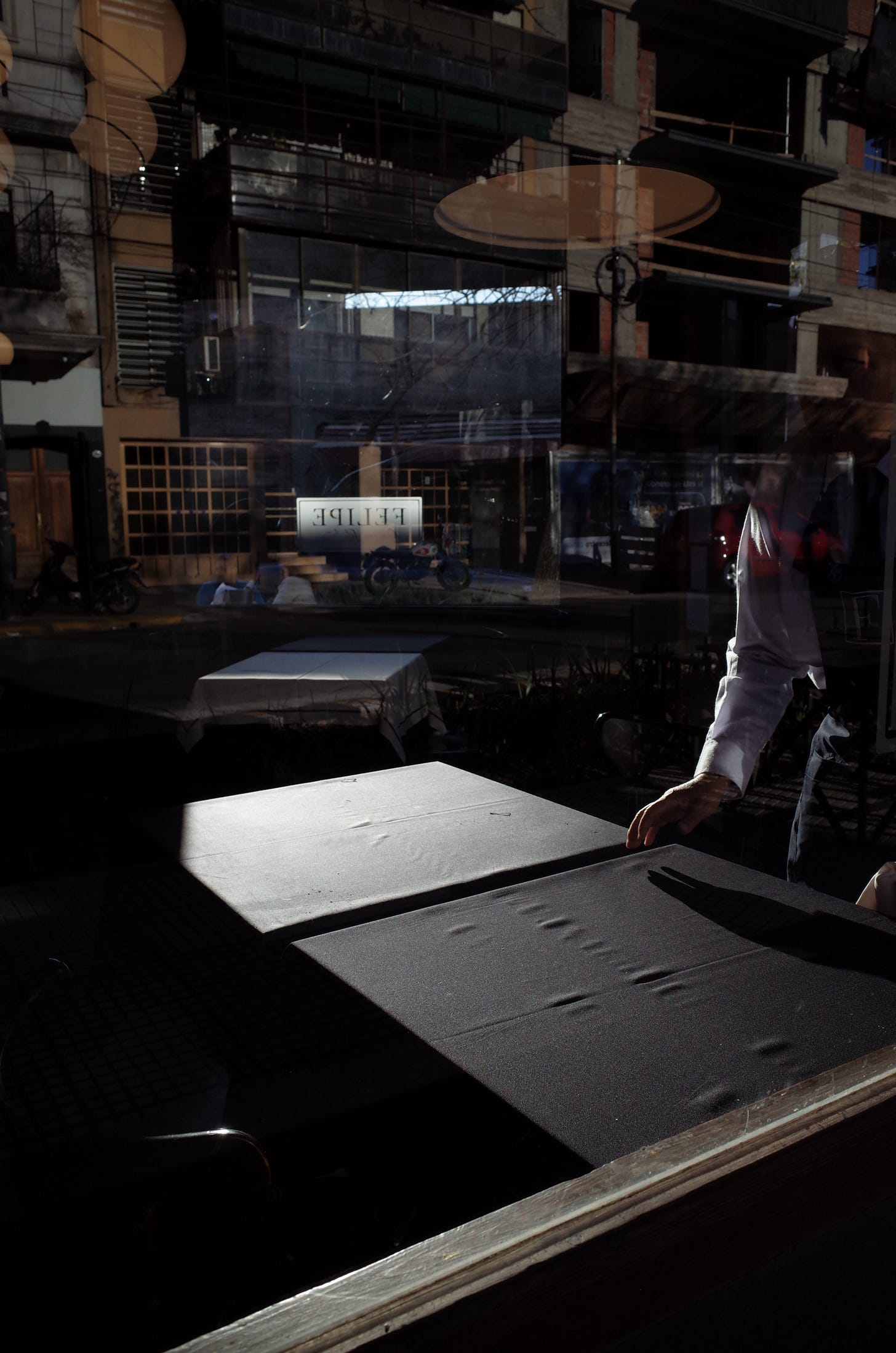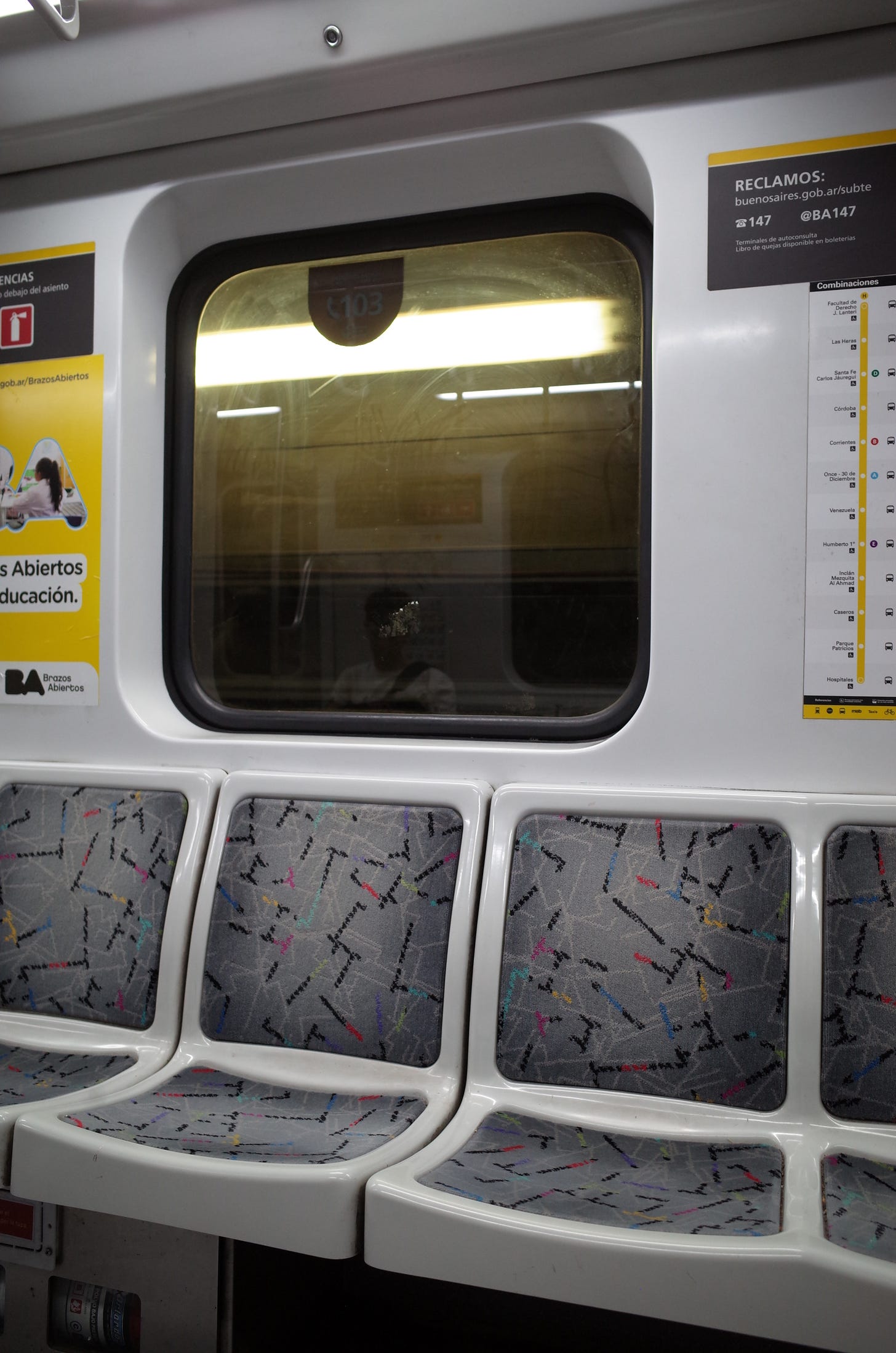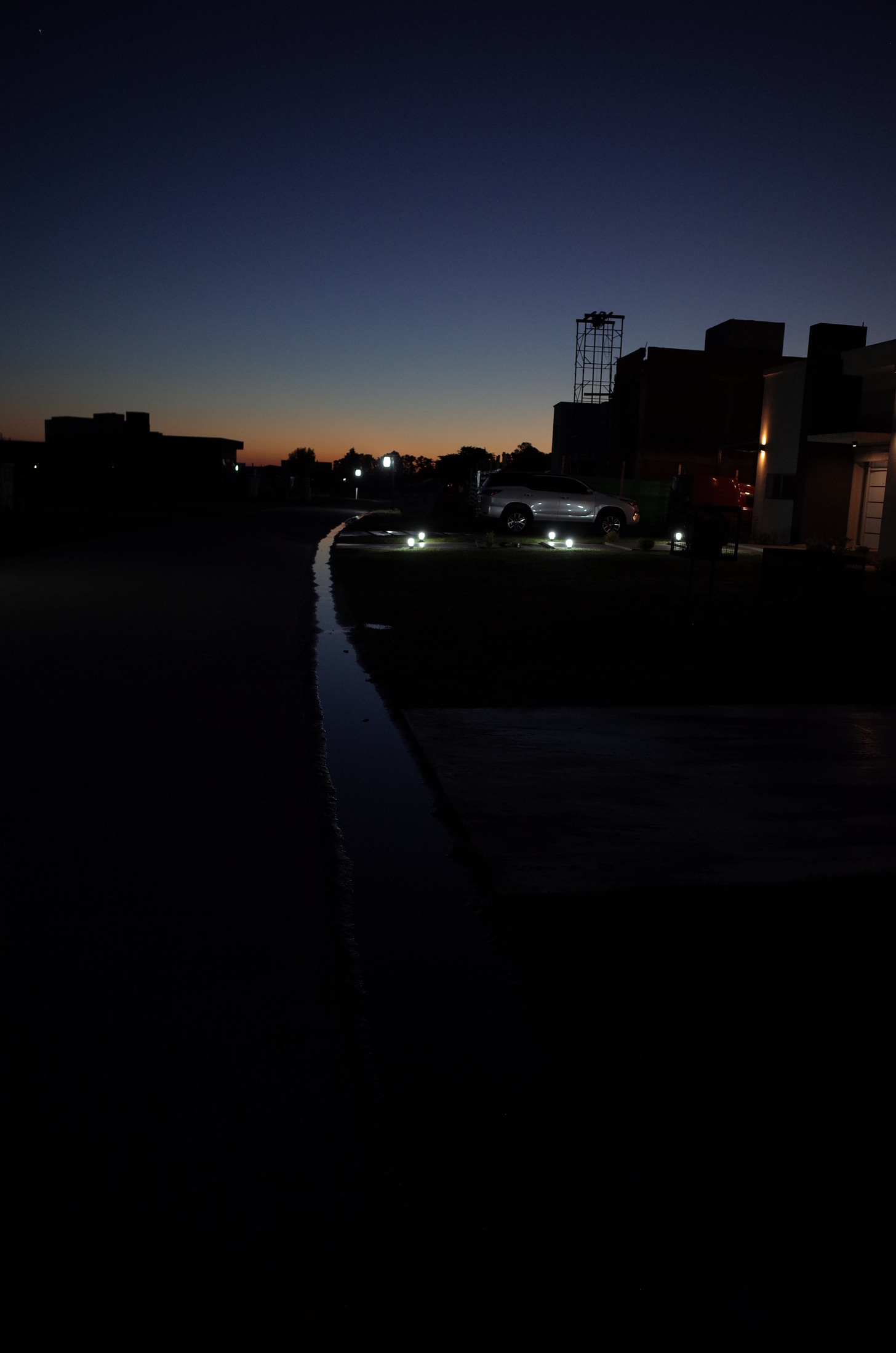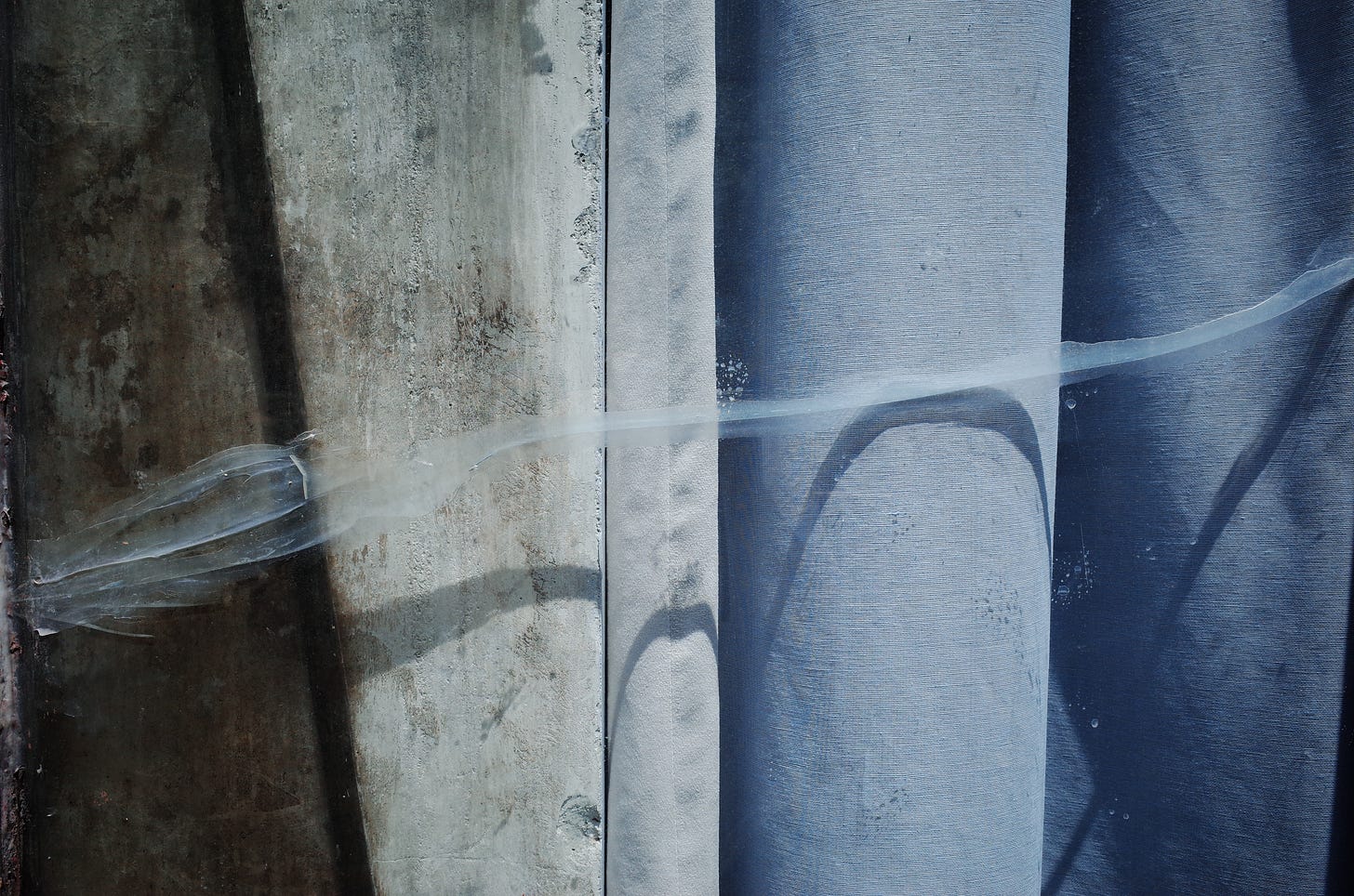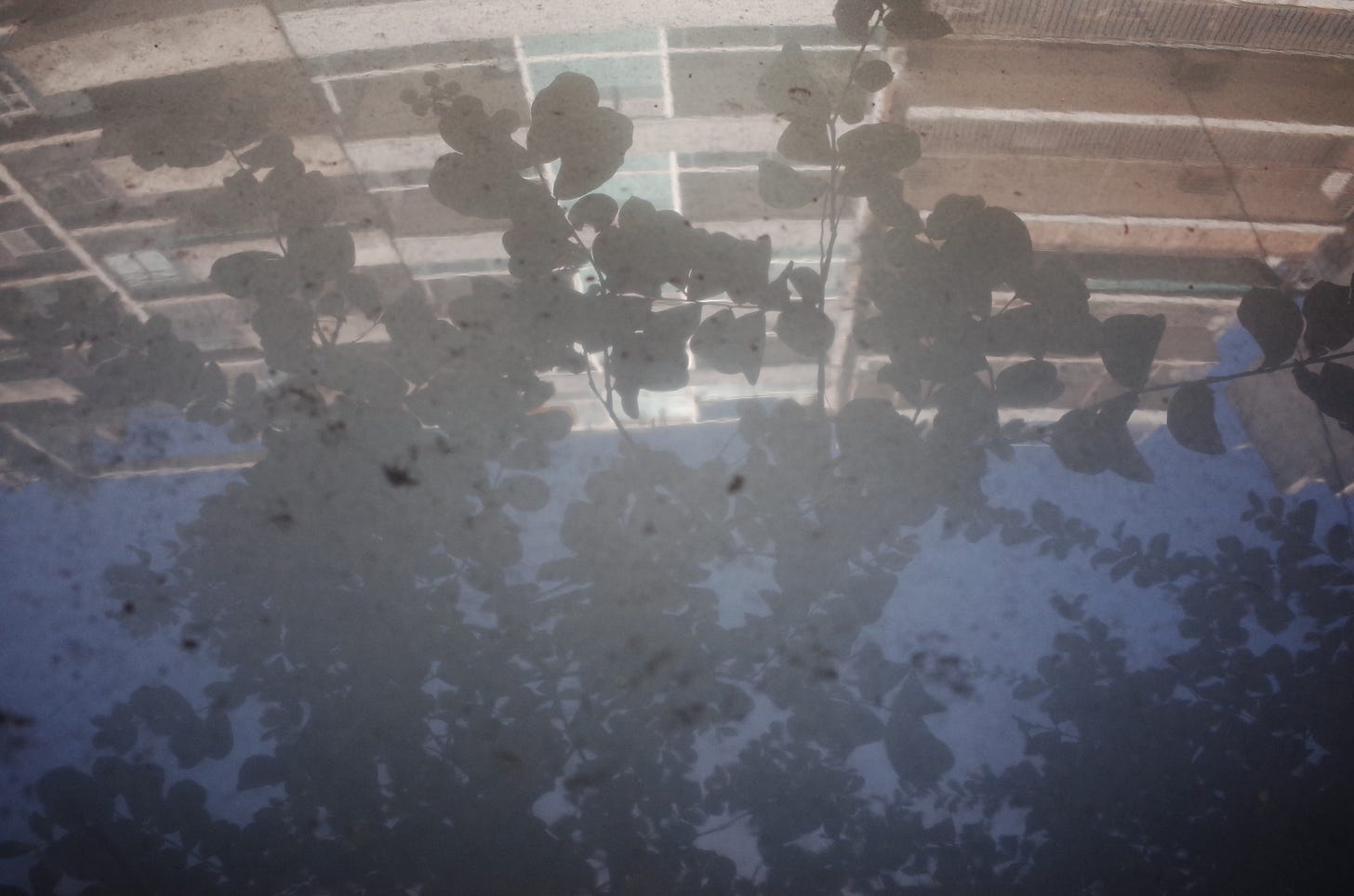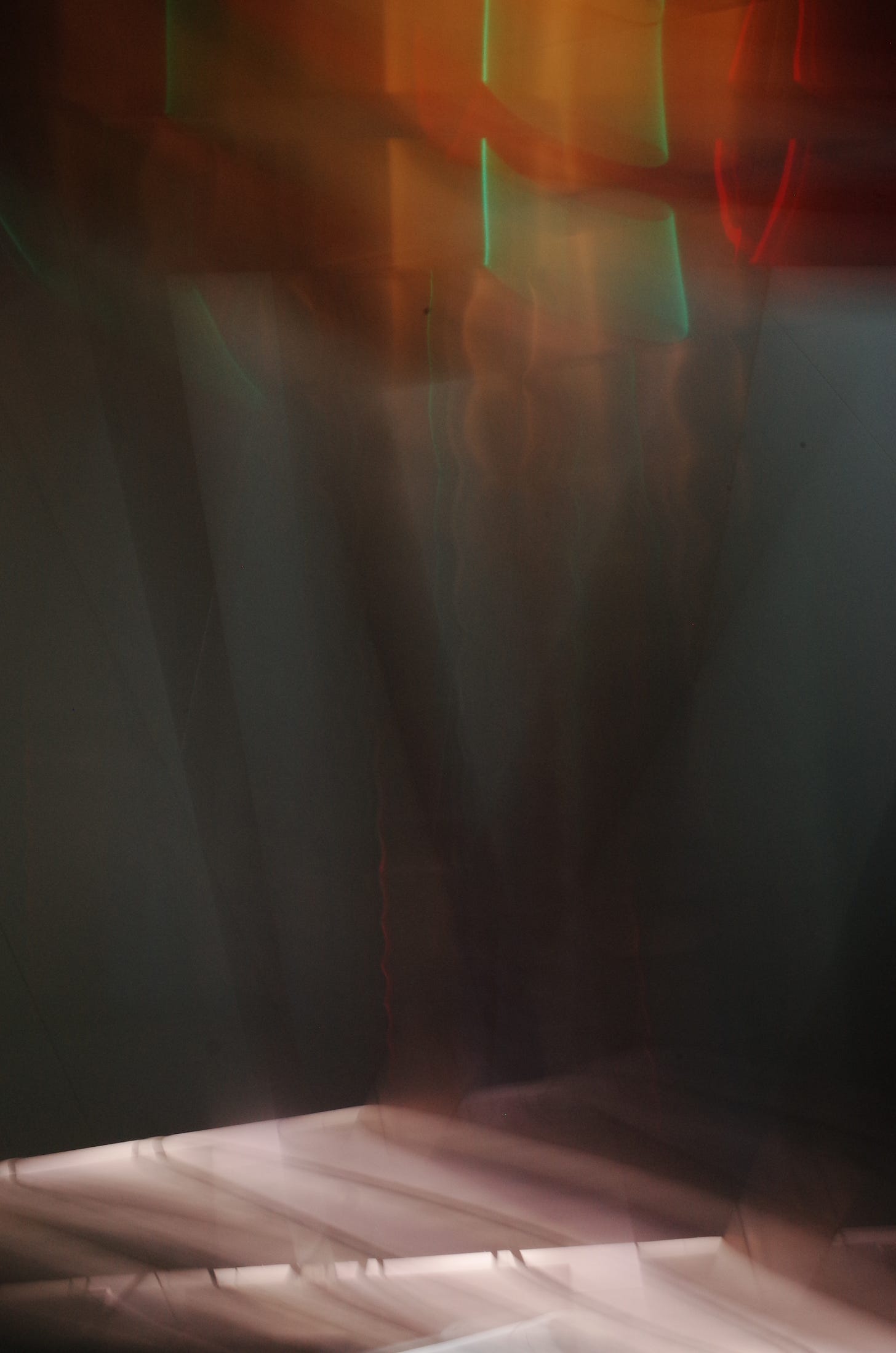Finally, it happened. I didn't meet the deadline for the post on April 15th. I was procrastinating right up to the limit, took a while to find a topic, went overboard trying to add things to it, things happened, and I didn't make it. "Oh, so you surely took advantage of the 15 days until today to work on it fully, right?"... Well, no, my dear, I'm finishing it up on the day it's supposed to be published, as always. I never learn.
So, what is this long-awaited post in this newsletter that I enjoy writing so much about? About this very thing... Postception.
The concept is quite simple: Why do we struggle so much to do what we love doing? That's what we're going to explore in the usual format of my chaotic idea dump.
In summary, the famous procrastination.
All the photos accompanying the article are raw JPGs from my compact camera, without any retouching, captured during my walks over the past year, to accompany the idea of "done is better than perfect."
To liven things up, I bring you the playlist of full albums with stuff I've stumbled upon and been sent during the week, and the full show of The Fearless Flyers recording their latest album live at Blue Note.
Lastly, if you're reading this from the email, you might not see all the content of the post and have to click on "read more" or something, because I went overboard with writing. I’m sorryn’t.
Damage report
The Wikipedia defines procrastination as "the action or habit of delaying tasks or situations that must be addressed, replacing them with other more irrelevant or enjoyable situations due to fear of facing them or laziness to do them."
Surely it has happened to you: You have to study for an exam and you start cleaning the house. You have to submit a work and, oh look, the new season of that series that I don't care that much about just came out, I'll start watching it right now. And you don't even enjoy what you're doing because you're constantly aware that you're avoiding something else. Of course it has happened to you. And if it happens to everyone, what's the problem?
The main victim is "the product", whatever it is that you're procrastinating on: You're inevitably limiting its potential and delivering a lower quality overall than what it could have been. It's a self-sabotage where the fear of one's own genius prevails to protect the comforting peace of mediocrity.
And, obviously, with the final product diminished, the next victims are those who receive said product: Your clients if it's a job, your audience if it's a work, or whatever it may be. And always, always, yourself, because you know that you delivered less than you could have, disrespecting yourself along the way, as well as others and the work/task.
Focus is a bi-weekly newsletter written by Nacho Dramis. Subscribe to get it free in your email. If you enjoy the content and find it useful, you can make a financial contribution to support the project through Cafecito (Argentina) or PayPal (Worldwide). Making this content for free and ad-free takes a lot of time and effort!
Este newsletter también está disponible en español.
The dance of chaos and structure
After a decade of working independently in diverse and simultaneous fields such as photography and IT, I've recently gained the mental clarity to handle multiple concurrent projects. This realization led me to understand an unavoidable reality: I need a bit of structure. I need to know that on Monday mornings I'll be working on A, in the afternoon I'll tackle B, Tuesdays will be dedicated entirely to C, and so on.
It's not necessary to delve into a detailed account of all the things I'm involved in, but just to give you an overview: on the professional side, I engage in photography, filming, and editing for others; I sell refurbished corporate laptops; I handle some system administration tasks and technical support for both companies and individuals; I'm building a website with a friend; I conduct photography workshops (and I'd love to resume giving classes); I'm starting a YouTube channel in the same educational vein; I maintain this newsletter (which I consider a job and has already yielded some indirect benefits); and I manage stores where I sell a variety of digital and physical products internationally. In addition to these professional activities, I also pursue non-work-related endeavors such as making music solo and with two bands, maintaining a social life, staying physically active, and more.
Once I've sorted out all the projects I'm involved in, it'll be time to organize all the unfinished ones and give them volume or shape according to the state of my mind. Songs, projects, tasks, photos to edit, etc. I literally have a notebook called "project graveyard." Seriously.
Although I keep a pretty tidy calendar and it's rare for me to miss anything, I need to set fixed tasks at fixed times and days so that the allocation of finite resources like time doesn't depend solely on my mood and become unbalanced. It's also vital to manage projects in an organized way. I use Notion with my own task management template (which I'll eventually adjust so others can use it), but at the same time, it's important to give those projects an order in daily life when there's no set schedule like in a regular job.
And on top of that, I’m a freelancer
Speaking of the employer-employee relationship, it's very difficult to maintain faith in projects that don't bring in money. Many of the projects I have don't generate income now or in the near future, yet they consume a considerable amount of time and energy. Without a guaranteed salary at the end of the month and a fixed number of hours to dedicate to work because someone else dictates it, it becomes complex to balance these things. To keep these projects afloat, it's essential to maintain a positive attitude bordering on incoherence, which is sometimes achieved and sometimes not.
Another contrast with people who have a formal job is that they don't need their personal projects to put food on the table. They have their job (which they may or may not enjoy), a side job that brings in some extra cash (because in this country it's nearly impossible to live on a single income), and activities or hobbies solely for pleasure that they don't expect income from. When you work independently, especially in the creative field, it's inevitable to constantly ask yourself, "Hey, isn't there a way for this to make me some money?" even when you're doing something as simple as playing the guitar or doing the laundry. The boundary between work and hobby becomes blurred, with all the pros and cons that entails.
Finally, we have the factor of self-promotion: The role of social media in showcasing what you're doing and how ridiculous you feel (and sometimes are made to feel) shouting into the void in that filthy sea we've turned the internet into, just to see if someone happens to need what you're doing and didn't know you were doing it. It's worth remembering how important the support of the people who care about you is to go a little further. And there's a bit of "fake it till you make it" too... Who cares? I do, because if I don't take myself seriously, no one else will.
Conclusions
Here's the next list of unavoidable realities and questionable conclusions:
You're going to get fed up, even with what you love, even if you approach it well. The career you study will have subjects and professors that suck. The dream job (whether hired or freelance) will include tasks you don't want to do. The person you like has a thousand flaws and personality traits that will clash with yours.
My natural state is still and alone in front of a screen consuming nonsense. Anything that changes that needs an impulse to break the inertia that is very difficult to achieve.
Two quasi-literal quotes taken from the conversation between Eio and Grego linked below: "The artist has laziness at hand" and "In the middle of the crap, genius appears, but first you have to write a thousand pages of crap." The famous "Let inspiration catch you working."
The key is usually to just start. It's that simple. "Just do it" and all that. Doing a little bit, just a small task, often gets you into the flow. Many use the "10-minute rule", which is to force yourself to do whatever you're struggling with for just 10 minutes, and usually once you start, you forget about the imposed time and keep going.
Accept the mess, but put it in a sandbox, a concept from gaming and computer science that implies an isolated space to play and break things without real consequences. Chaos is a necessary part of the creative process and needs a place to express itself.
Parkinson's Law states that "work expands to fill the time available for its completion." If we give a task 8 hours, it will take 8 hours. If we give it a month, it will take a month. Learning to allocate precise times to complete things satisfactorily without them becoming an endless ordeal is essential.
I need the burning sensation of a deadline to function, and I miss it in projects that don't have one. Setting artificial rules and deadlines as if those projects were for a client can help shape them.
Establishing a routine, even if it only matters to me, and respecting it as much as possible, will allow me to allocate time and mental energy to projects whether they generate income or not. Many projects lead to fatigue and decision paralysis when unable to choose what to focus on; eradicating this factor with an arbitrary schedule.
"Done is better than perfect". This is very important. Perfectionism is the greatest enemy of productivity; it's no use having a wonderful idea if it only lives inside my head.
Procrastination is a problem that affects a bunch of people, especially among millennials, which is why there is a lot of information and techniques to manage it as best as possible.
The Pareto Principle or 80/20 rule can be interpreted as 20% of the effort producing 80% of the result, and the Law of Diminishing Returns states that keeping the production unit constant will yield diminishing results over time. These two concepts are closely related to perfectionism and the difficulty of breaking the initial inertia of procrastination.
Let's not allow the allure of complexity to overshadow the simplicity of conveying much with few tools. Dream Theater is great, but so is Air.
To wrap up, here are some interesting links to continue exploring the topic, many of which provided material for this post:
Rick Rubin's Instagram, where he posts a quote and deletes all previous ones, but always leaves you thinking. I found them compiled on another account that I don't think he manages, but anyway.
https://www.instagram.com/rickrubin/
https://www.instagram.com/rickrubinquotes/
Grego Rossello interviewing Eio Moldavsky, which is always a pleasure to listen to.
Venus Theory, a music producer among other things, discussing work ethics, motivation, and the "flow state".
A few videos from Wheezy Waiter, a YouTuber I love, about why we don't want to do what we want to do, decision fatigue and perfectionism, procrastination and occasions where it’s useful, etc.
Thank you for reading!
Focus is a bi-weekly newsletter written by Nacho Dramis. Subscribe to get it free in your email. If you enjoy the content and find it useful, you can make a financial contribution to support the project through Cafecito (Argentina) or PayPal (Worldwide). Making this content for free and ad-free takes a lot of time and effort!
Another way to support the project is by purchasing prints and various items with my photos in my international store on RedBubble. I don't have a store for Argentina yet, but I hope to solve that soon.
The links to Notion and Moment are affiliate links, which means that if you buy something from them, you pay the same and I earn a commission.
You can also follow me on Instagram, Behance, and Twitter. Sharing my articles helps a lot and is free :)
Este newsletter también está disponible en español.






